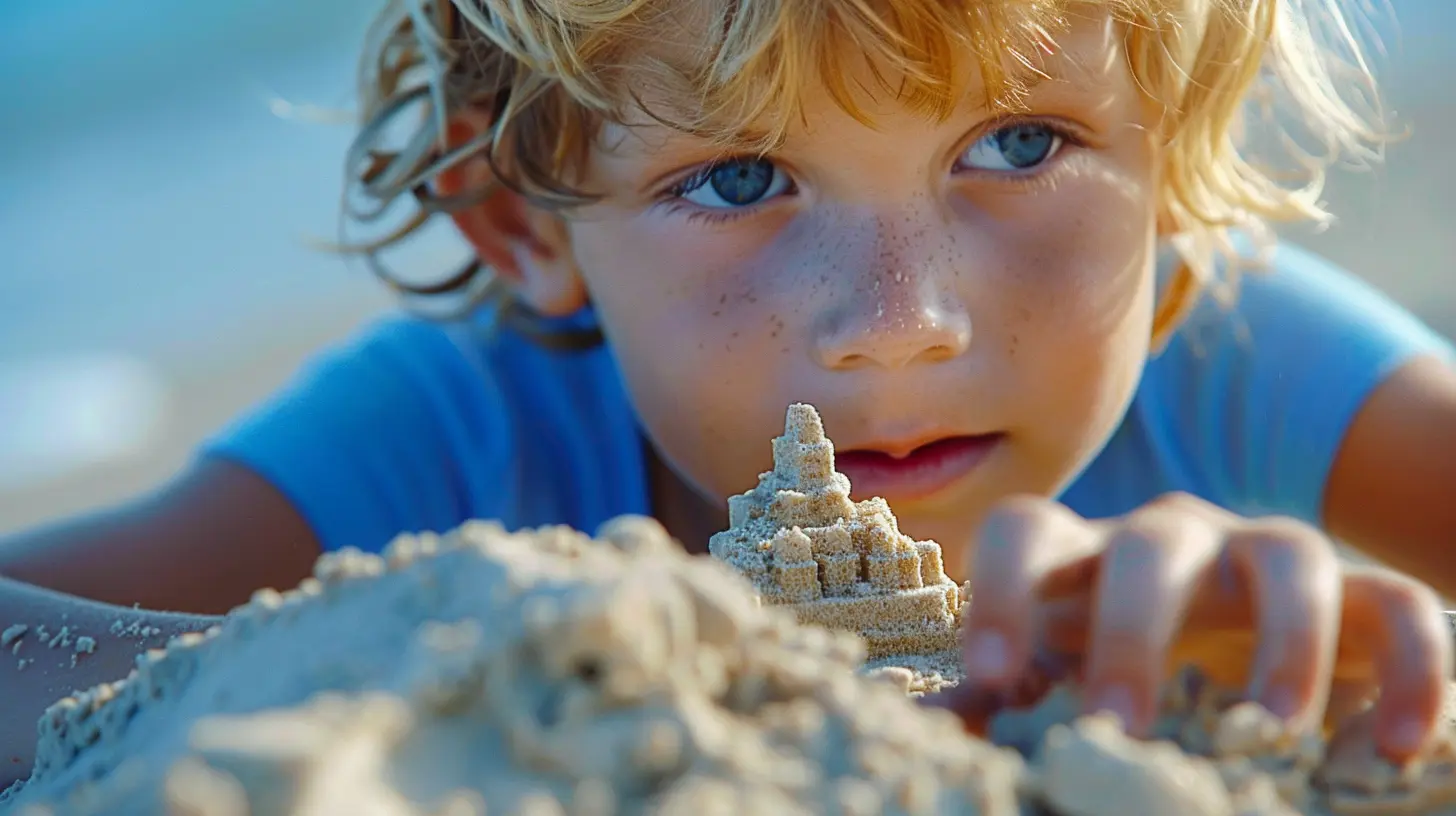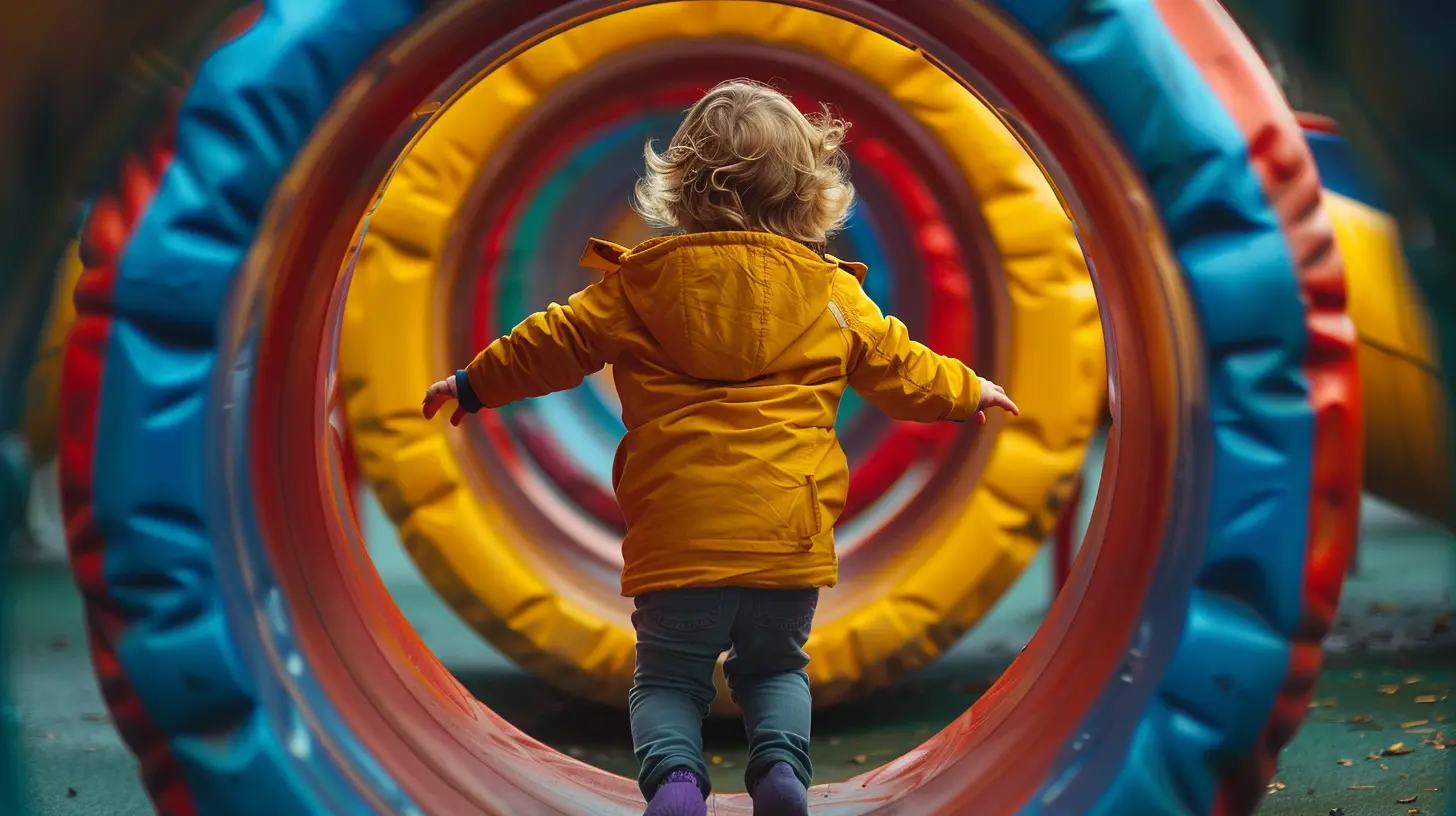The Importance of Unstructured Play for Child Development
22 November 2025
Let’s be honest—parenting today feels like refereeing a constant match between screen time, extracurricular schedules, and trying to just… let kids be kids. With all the piano lessons, soccer practices, and tutoring sessions, we’ve unintentionally squeezed out something incredibly valuable—unstructured play. And spoiler alert: it’s more than just “free time.” It's a powerhouse for your child's growth, creativity, and emotional health.
In this post, we’re diving into why unstructured play isn’t just “nice to have” but absolutely essential for healthy child development. Grab a cup of coffee, take a deep breath, and let’s chat about why you might want to block off some time for your child to do… well, absolutely nothing—but in the best way possible.
What Exactly Is Unstructured Play?
First things first—what do we mean when we say "unstructured play"?Unstructured play is any activity that children initiate and control themselves, without pre-set rules, instructions, or adult-driven agendas. Think building castles from couch cushions, playing tag in the backyard, inventing games with imaginary friends, or having a tea party with stuffed animals. It’s all about spontaneity, creativity, and freedom.
Structured vs. Unstructured Play: What’s the Deal?
Structured play includes activities with rules, guidance, and goals—organized sports, music classes, or schoolyard games like kickball. These are great too, but they serve a different purpose.Unstructured play, on the other hand, is like jazz improv—it’s unpredictable, flowing, and deeply expressive. No adult is handing out directions or telling kids what the "right" way to play is. And that’s exactly where the magic happens.
Why Unstructured Play Matters So Much
Ready for the good stuff? Let’s unpack why unstructured play is a developmental goldmine. Spoiler: you’ll be amazed at how much kids learn when they’re “just playing.”1. Fuels Creativity and Imagination
Let’s start with one of the most obvious—but most overlooked—benefits: creativity.When kids have the freedom to create their own games, worlds, and characters, their imaginations soar. Whether it’s pretending the living room is a pirate ship or turning a cardboard box into a robot suit, they are learning to think outside the box—literally.
This kind of imaginative play builds:
- Problem-solving skills
- Innovative thinking
- Adaptability
Think of it as mental gymnastics for their creativity muscles.
2. Builds Social Skills
Surprised? It’s true. Unstructured play isn’t always solo—it often happens in groups. Whether it’s at recess or in the neighborhood park, kids are constantly negotiating rules, taking turns, resolving arguments, and learning how to get along.Unlike structured activities where adults intervene to settle disagreements, free play gives kids the chance to practice social dynamics on their own. And yes, sometimes they’ll argue or even cry—but these are golden moments for emotional growth.
3. Encourages Emotional Regulation
Ever watched your child pretend to be a superhero to “defeat” a scary monster? That’s more than just make-believe—it’s therapy in disguise.Play allows kids to express complicated emotions and work through fears in a safe, creative setting. It helps them:
- Cope with anxiety
- Improve self-control
- Build resilience
By working through feelings during play, they mentally rehearse how to deal with real-world challenges.
4. Promotes Physical Health
Let’s not forget the body! When kids are running around the yard, climbing trees, or riding bikes, they're developing key motor skills and getting a healthy dose of physical activity.With screen time on the rise and physical education often on the decline, unstructured outdoor play serves as a fun and natural way to stay active. Plus, all that movement helps with:
- Coordination
- Balance
- Overall fitness
Not to mention, it beats another hour in front of the tablet, am I right?
5. Supports Cognitive Development
Here’s where unstructured play becomes a brain booster.When kids decide what to play, how to play, and who to play with, they’re engaging in high-level thinking.
They learn how to:
- Set goals
- Plan and organize
- Make decisions
This kind of self-directed learning fosters independence and critical thinking—skills they'll rely on for life.
The Science Behind It All
Still wondering if this is just a feel-good idea? Nope, researchers are backing it up.According to the American Academy of Pediatrics, unstructured play is vital for healthy brain development. Studies show that play rewires children's brains, builds neural connections, and teaches problem-solving better than most classroom lessons.
In fact, some child psychologists argue that kids who lack free play are more vulnerable to anxiety, depression, and attention issues. Simply put, kids need play like plants need sunshine.
The Modern Play Crisis: Too Much Structure?
Let’s face it: today’s kids are busy. We’ve packed their days with structured activities, academic milestones, and screen-based entertainment. But at what cost?Kids are playing less than ever before. Recess time is shrinking, playdates are often orchestrated, and spontaneous after-school adventures are practically extinct.
Sure, we mean well. We want our kids to succeed and have enriching experiences. But ironically, taking away play might be robbing them of exactly what they need to thrive.
The Rise of the Overscheduled Child
Many well-meaning parents believe that more activities mean more learning. But overwhelming schedules can actually lead to:- Burnout
- Anxiety
- Decreased creativity
Balance is key. Think of unstructured play as mental and emotional “downtime”—essential for a well-rounded, happy kiddo.
How to Encourage More Unstructured Play
Okay, so we agree play is important. But how do we actually make room for it in our hectic lives?1. Ditch the Schedule (Sometimes)
You don’t have to throw the planner out the window, but carve out time where nothing’s planned. Yep, just leave blocks of time open for your child to simply play.Let them be bored. Seriously. Boredom is the spark for creativity. When there's nothing guiding them, their imagination kicks in.
2. Create a Play-Friendly Environment
You don’t need an elaborate playroom with expensive toys. Just offer open-ended materials like:- Blocks and LEGOs
- Art supplies
- Nature items (rocks, sticks, leaves)
- Dress-up clothes
- Cardboard boxes (yes, really!)
These tools encourage exploration and creativity, not just passive entertainment.
3. Limit Screen Time
This is a tough one, but essential. Screens often replace playtime. Try setting boundaries like:- No screens before school
- Screen-free afternoons
- Tech-free zones in the house
Kids might protest at first, but they’ll find something fun to do once their minds start wandering.
4. Get Outside
Nature is the ultimate playground. Parks, backyards, even a patch of dirt can become an endless source of inspiration.Plus, outdoor play combines movement, sensory experiences, and unstructured freedom—it’s a triple-win.
5. Step Back, Don’t Step In
It might feel counterintuitive, but sometimes the best thing you can do is… nothing. Let your kids figure things out while playing. Resist the urge to intervene every time they struggle or squabble.They’ll learn more from problem-solving themselves than from a dozen adult lectures.
Can You Still Mix in Structured Activities?
Absolutely! There’s nothing wrong with dance classes, music lessons, or sports teams. Structured activities teach discipline, teamwork, and skill-building.The goal isn’t to eliminate structure, but to balance it with enough time for free play. Think of it like a well-balanced meal: Structure is the protein, and unstructured play is the vegetables and dessert combined. You need all of it!
Final Thoughts: Let Them Be Little
At the end of the day, childhood is not a race; it’s a journey full of mud pies, hide-and-seek, and make-believe adventures under the kitchen table. The importance of unstructured play for child development isn’t just backed by research—it’s a truth you can see in your child’s eyes when they’re lost in their own little world.So next time you’re tempted to fill every hour of their day, pause. Leave room for the magic of doing nothing. Because in those unscheduled, messy, joy-filled moments, your child learns to be who they truly are.
all images in this post were generated using AI tools
Category:
Parenting SupportAuthor:

Kelly Snow
Discussion
rate this article
1 comments
Morrow Morris
Unstructured play: where kids master the art of creativity while parents master the art of relaxation!
November 26, 2025 at 5:19 AM

Kelly Snow
Absolutely! Unstructured play fosters creativity in children while providing parents a much-needed break. It's a win-win for everyone!


